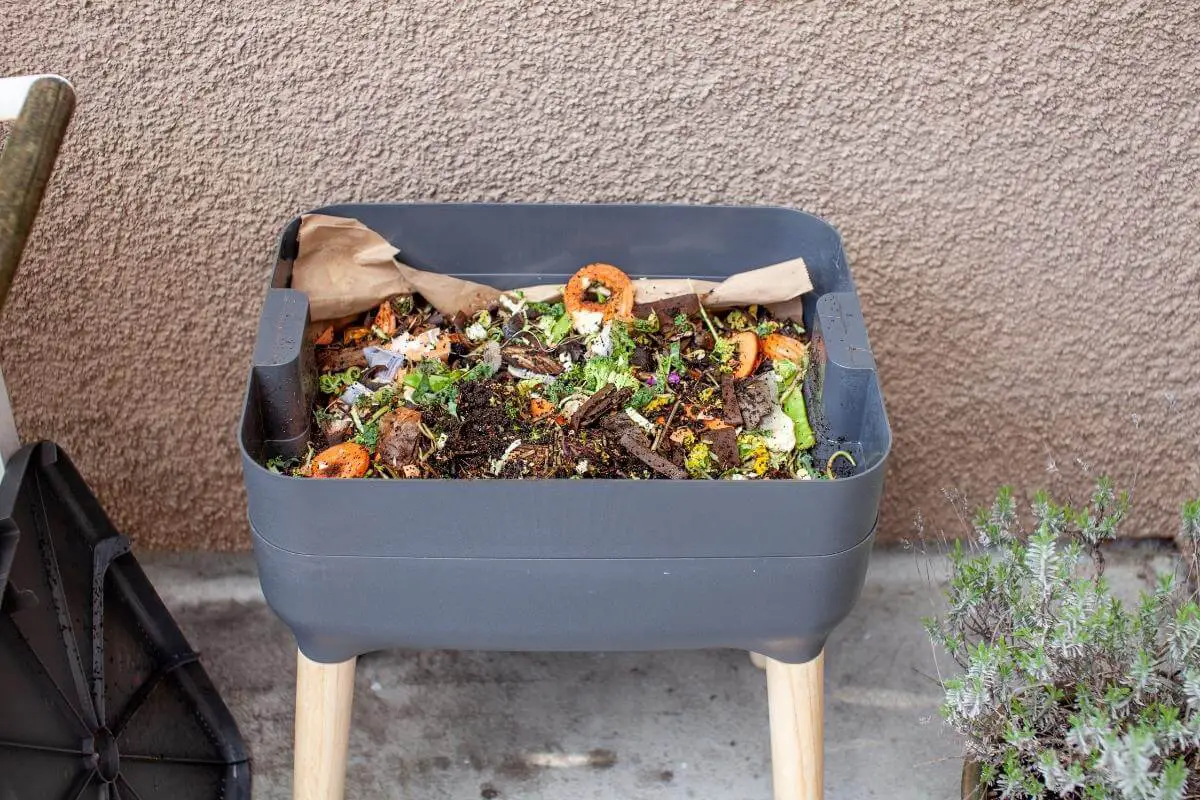Adding nutrients to your soil is a great way to make your garden flourish.
Most people think immediately of fertilizers when they want to give their garden a boost because it’s widely available and doesn’t take up time and space like composting.
Fertilizers offer a quick boost to your plants but leave the soil chemically dependent. In contrast, vermicompost adds living micro-organisms to the ground, breaking down organic matter and making it nutritionally available to your plants.
Keep reading to learn the critical differences between vermicompost and fertilizers so you can pick which one is best for you.
What is Vermicompost?
Vermicompost is a fertilizer, with the critical difference being that most fertilizers use chemicals for better crop yield, but they don’t improve the overall health of your plants.
Vermicompost is a natural fertilizer that contains micro-organisms and attracts earthworms, which enhances the soil and plant health in the long term.
Here are some of the benefits of vermicompost compared to chemical fertilizers.
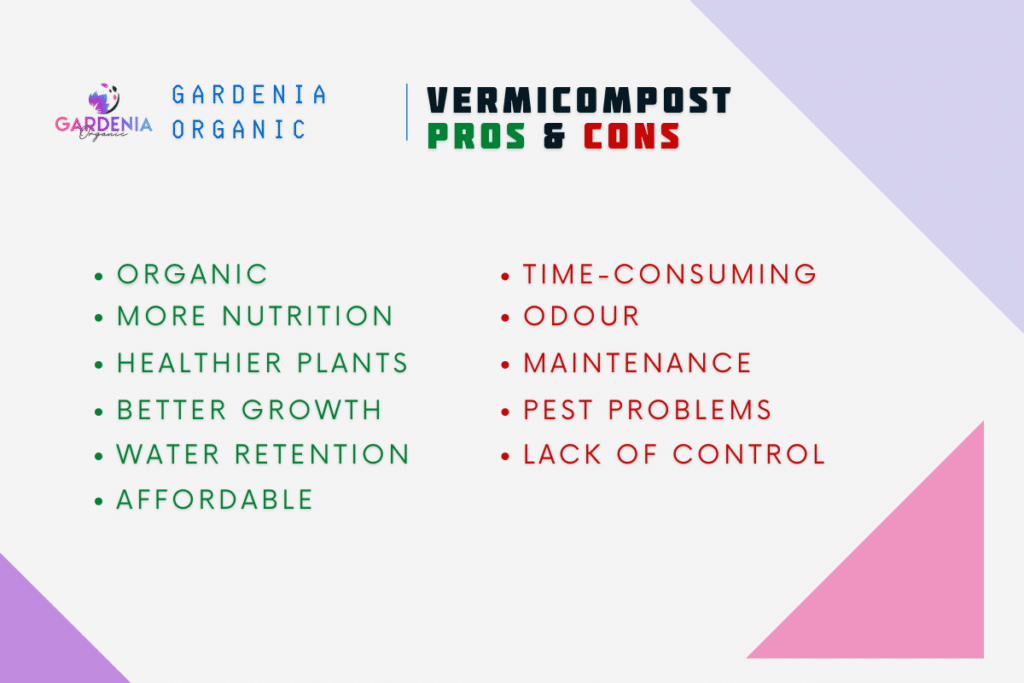
Organic
Introducing chemicals into your soil can cause your soil to become dependent on those chemicals for its nutrients.
Bringing organic materials to your earth not only helps improve the health of your soil and your plants, but it’s also safe for humans and animals that co-exist with your garden.
To learn more about the environmental impact of fertilizers, you can check out the Solana Center for Environmental Innovation website.
More Nutrition
Chemical fertilizers only temporarily add to the soil, whereas vermicompost brings new nutrients to the ground and has a more prolonged impact.
It brings organic material into the earth, but more than that, it attracts earthworms, who will then take over, breaking down organic materials and making the nutrients from them more manageable for the roots of the plants to use as food source.
Healthier Plants
Fertilizers do nothing for a plant’s health but only temporarily improve the yield.
Continued use of fertilizers will lead to a breakdown in the soil as ammonia and salts build up and make plants more susceptible to disease.
Vermicompost improves plants’ health, which in turn makes them more able to withstand illness and have less need for pesticides.
Better Growth
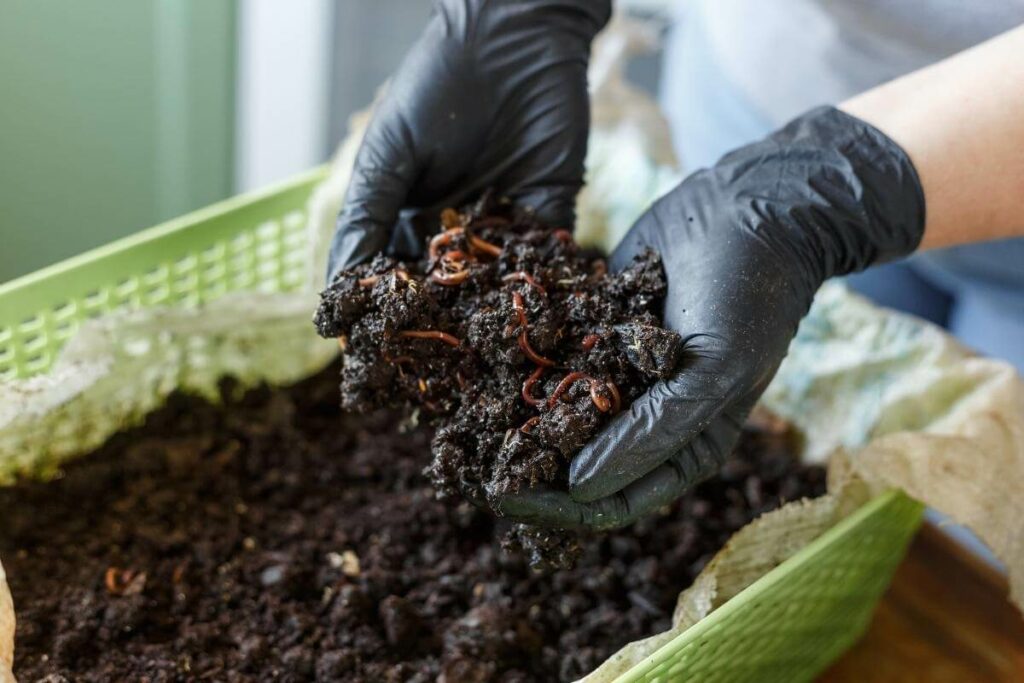
Vermicompost contains hormones that help plants to grow better.
These hormones encourage the germination of seeds, more robust growth and better crop yield.
Good News: This improvement comes from vermicompost targeting the roots of the plants and helping their growth and health, which benefits the overall health of your plants.
Improved Water Retention
Since vermicompost encourages earthworms to gravitate towards your garden, you will see an improvement in your soil’s water retention and drainage.
Earthworms create tunnels in the ground, allowing excess water to drain away, preventing root rot.
The vermicompost itself can hold up to nine times its weight in water, so your soil won’t dry up as quickly.
Affordable
Vermicompost is by far the more affordable option compared to fertilizers because of its long-term impact on your soil’s health.
Chemical fertilizers create an ongoing need in your soil for the chemicals they provide, whereas vermicompost will revitalize your soil:
- You won’t need to buy as much vermicompost or as often as you will with fertilizers.
- Fertilizers also have a rapid boost that quickly flushes away in the rain or because there are more nutrients than your plants can use.
- Vermicompost will slowly release nutrition into your soil since it’s less likely to wash away in the rain, and it offers nutrients in a way more suited to plants’ natural growth cycle.
Which Is Better for Plants Compost or Vermicompost?
Since vermicompost has “compost” in the name, you may be wondering what the difference is between the two and whether it is better to use one or the other.
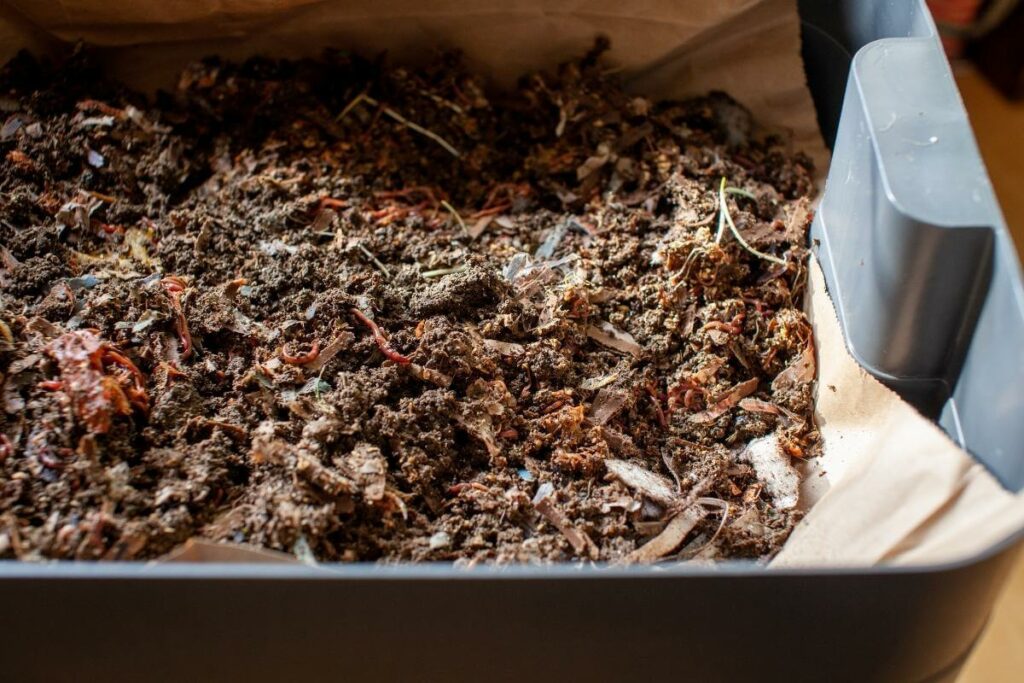
Vermicompost contains compost, but it also has other organic materials, which facilitate healthier growth, such as nitrogen, potassium and phosphorus.
While naming your compost may be cheaper and offers its benefits, there is no guarantee that it will provide the nutrients your garden needs or can use.
It’s still a great way of bringing your soil to a healthier state.
What are the Disadvantages of Vermicomposting?
Now that you know the many benefits of vermicompost, here are some reasons it might not work for you or at least some negatives to be aware of once you start using it.
Time Consuming
While chemical fertilizers can give you an almost instant boost to your plants’ growth, vermicompost can take up to six months to show results as you wait for the earthworms to come and break down the organic material into something your plants can use.
Alternative: Even traditional compost will provide a faster result, with you seeing improvement in about three months.
Odour
Vermicompost contains compost and attracts worms which is beneficial for your garden but can quickly turn into a problematic smell if you aren’t careful.
Not having enough ventilation in your soil or overfeeding the worms can turn the natural, earthy smell into something more offensive.
Maintenance
A large part of vermicompost is maintaining the wellbeing of the worms.
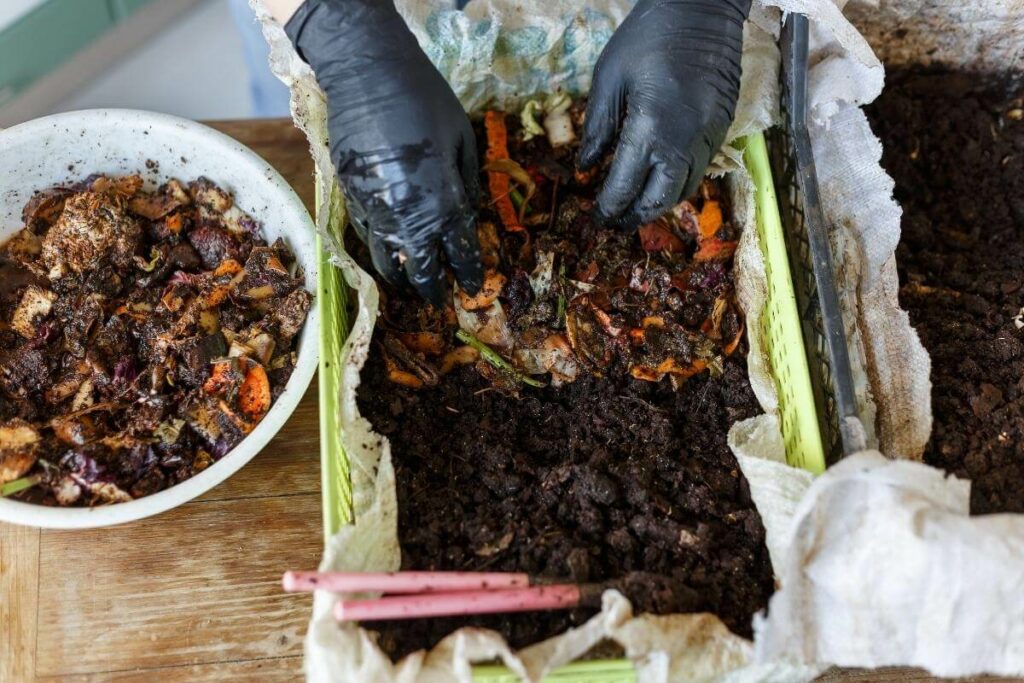
You don’t want to overfeed your worms, so you will need to constantly add small portions of food and keep a close eat on their health to get all the benefits.
Moisture is also an essential part of using vermicompost correctly, and you will need to monitor that it isn’t too dry or wet.
Pest Problems
While your plants will get better at withstanding disease and pests once they are healthier, it will take time for the vermicompost to impact your plants, and they will not have additional protection in the meantime.
Vermicompost bins can also attract other bugs and pests such as flies and centipedes, negatively impacting your garden.
Lack of Control
You won’t control where your worms go or how much impact they will have on your garden.
While you can spread vermicompost on some regions of your garden, there is no guarantee that the effects will stay within those areas.
Not necessarily a bad thing, but it can mean that your worms wander off to a different part of your property, leaving your garden.
Which Brand for Vermicompost Is Best?
The best brand of vermicompost is Trustbasket organic vermicompost.
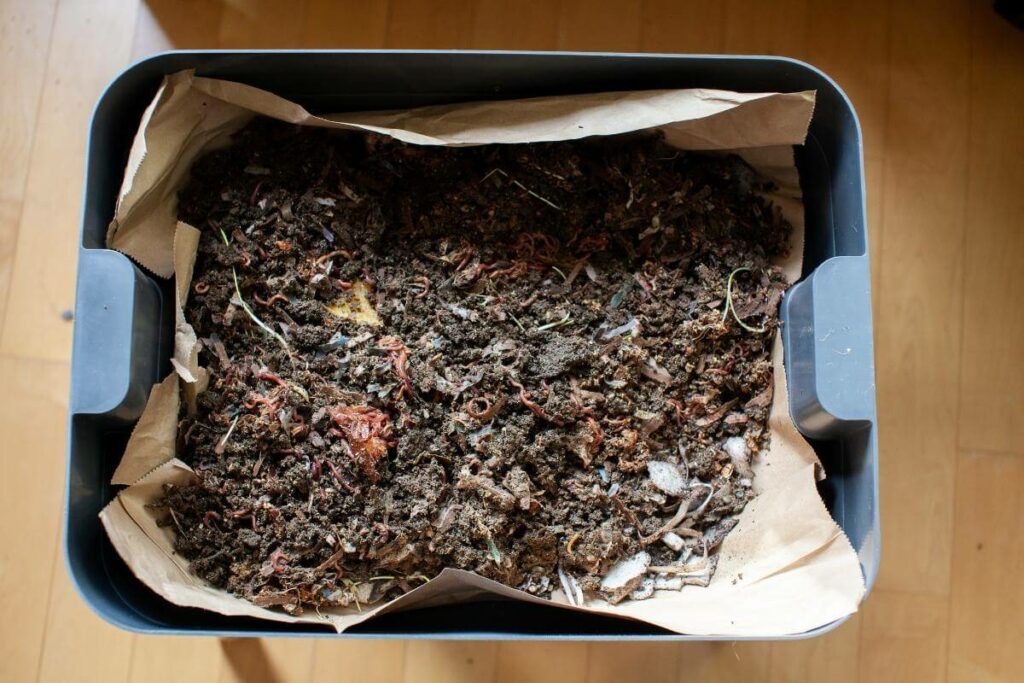
Trustbasket attracts deep-burrowing earthworms already in the soil, adds enzymes like phosphate and cellulase, and improves soil aeration.
However, it is more expensive and will cost you upwards of $100 for 5kg.
There are cheaper options like Gaia Green and Gro4, which are closer to $30 for 5kg, but you will have to expect lower performance from these products.
However, buying higher performance vermicompost for a higher price could be cheaper in the long run since it will give you better results with less product.
Final Thoughts
While vermicompost is a type of fertilizer, most fertilizers use chemicals like ammonia which can boost the growth of your plants initially but will usually offer more than your plants can handle.
Hence, most nutrients wash away with rain over time.
Vermicompost offers far more nutrients because it targets the plants’ roots and allows the plants to benefit from that nutrients slowly over time.
Furthermore, it’s organic-based nutrients which means that you will have healthy plants and soil which will not negatively impact the environment and living things around your garden like pets or other animals.
You Might Also Read
- How To Store Fertilizer (Fertilizer Storage Methods)
- Topsoil Vs Compost: Which One Is Better?
- How Much Compost to Mix with Soil
